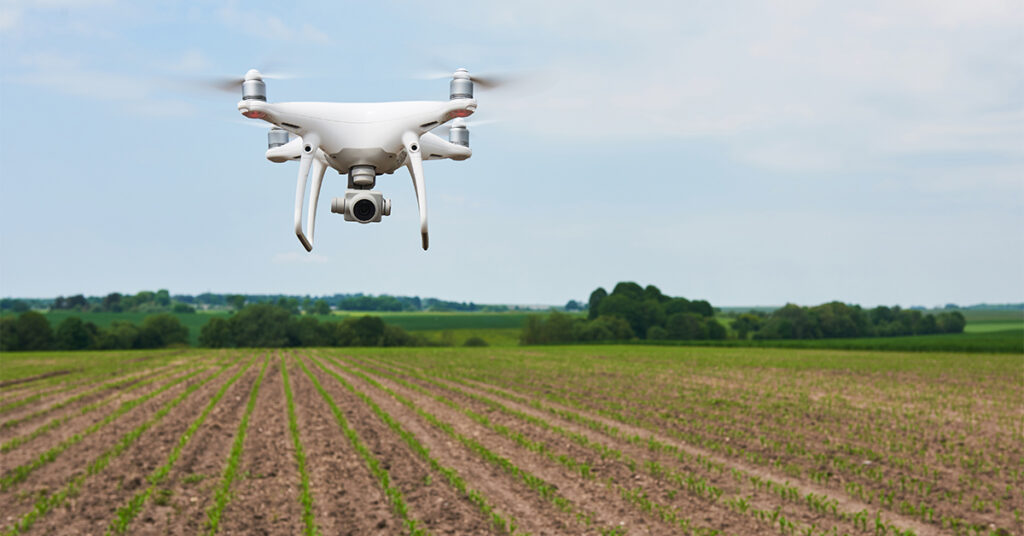Africa’s agricultural sector is at a critical juncture, grappling with mounting challenges including climate change, soil degradation, and rapid population growth, which collectively threaten food security. Currently, 282 million Africans face hunger daily, a figure poised to worsen as climate impacts intensify, potentially displacing 118 million people by 2030 due to extreme weather events. This dire situation underscores the urgent need for agricultural innovation and digital transformation.
Historically, agriculture has lagged in digital adoption compared to other sectors, hindering smallholder farmers’ ability to adapt to environmental and market shifts. Recognizing this, the African Union’s Digital Transformation Strategy aims to enhance agricultural efficiency and climate resilience by 2030, aligning with the Comprehensive African Agricultural Development Program’s goals of poverty reduction and food security.
The Fourth Industrial Revolution (4IR) presents a transformative opportunity for African agriculture, crucial for achieving the 2030 Sustainable Development Goals. Technologies like Artificial Intelligence (AI), blockchain, and the Internet of Things (IoT) are beginning to tackle long-standing issues such as low productivity and market inefficiencies. These digital innovations offer data-driven insights, precision targeting, and improved resource efficiency, vital for boosting agricultural output and ensuring food security for Africa’s growing populace.
CGIAR has been a key driver in this digital agricultural revolution, implementing 4IR tools like digital soil mapping and AI-powered crop disease detection. Innovations such as the IITA’s Cassava Disease Surveillance platform, Cassava Seed Tracker, and the Plant Village Nuru AI app empower smallholders to rapidly diagnose and manage diseases, leading to higher yields. Practical AI applications are already making a tangible impact: Hello Tractor, an “Uber for farmers,” connects tractor owners with farmers, while PlantVillage assists in early disease detection. The Malawi Digital Plant Health Service exemplifies a coordinated approach, bundling various global digital tools to support farmers.
Beyond disease management, AI is crucial for precision agriculture, optimizing soil monitoring, irrigation, and pest prediction. Ujuzi Kilimo uses sensors and data analytics for smallholder insights, and Project FARM leverages big data and machine learning for farming recommendations. CGIAR has also developed smart irrigation and climate forecasting tools, alongside digital agronomy platforms like RiceAdvice and NextGen Agroadvisory, which have yielded significant crop increases and profitability for farmers in Ethiopia, Nigeria, and Mali. Remote sensing and AI are further utilized for crop mapping, disease surveillance, and informing modern breeding methods.
Market access has also been enhanced through digital platforms and blockchain, reducing middlemen and improving supply chain transparency. The African Development Bank’s Technologies for African Agricultural Transformation (TAAT), implemented by CGIAR, has already delivered climate-smart seeds to 12 million farmers across 27 countries, using digital tools to promote validated technologies.
Despite these advancements, challenges persist. Uneven access to technology, low digital literacy, and the risk of job displacement due to automation demand attention. The digital divide, limited internet connectivity in rural areas, and data privacy concerns also need robust governance frameworks.
To fully harness 4IR’s potential, African governments and stakeholders must prioritize enabling policies, ethical technology use, and equitable access. This includes establishing data governance frameworks, promoting digital literacy, and fostering public-private partnerships. CGIAR’s Digital Transformation Accelerator Program supports these goals, ensuring farmers’ data rights and promoting equitable technology access. Regional and international collaboration, along with empowering youth and women with digital skills, are also vital for fostering entrepreneurship and creating new job opportunities, further boosting rural economies. Investing in 4IR infrastructure across various agricultural facets—from seed and soil productivity to marketing, financing, and policy-making—is crucial for Africa to leverage these technologies, address food security, and drive sustainable development.

